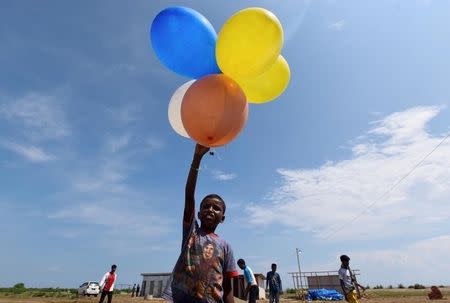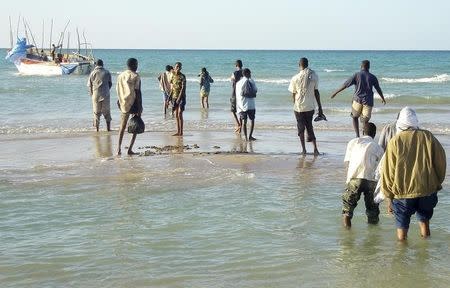Top senator demands State Department documents on human trafficking report
By Matt Spetalnick and Idrees Ali WASHINGTON (Reuters) - A U.S. Senate committee demanded on Thursday that the State Department hand over all the documents used to rank countries in its annual human trafficking report, as lawmakers expressed concern it had been watered down for political reasons. Senator Bob Corker, Republican chairman of the Senate Foreign Relations panel, issued the order as members grilled a senior State Department official over whether politics trumped human rights in the higher grades given this year to strategically important countries such as Malaysia and Cuba. The contentious hearing followed a Reuters examination that showed the State Department office set up to independently rate countries' efforts to fight human trafficking was repeatedly overruled by senior U.S. diplomats. Testifying before the committee, Undersecretary of State Sarah Sewall defended the Obama administration under questioning about the 2015 Trafficking in Persons report published on July 27. Over the objections of the State Department’s own experts, Malaysia and Cuba were among countries upgraded from the blacklist of worst offenders on human trafficking. Corker threatened a congressional subpoena if all documents, including emails, memos and telephone records, were not provided and vowed “significant consequences” if any materials were destroyed. Asserting that many of the rankings appeared to be "the result of external pressure," Democratic Senator Bob Menendez raised the prospect of calling for an inspector general’s investigation. “If it is true that the administration politicized this report, there are questions about why they chose to significantly diminish a tool that has been effective in fighting slavery around the world,” Corker said, expressing concern that the ranking process had “run amok.” Sewall, who oversees the U.S. Office to Monitor and Combat Trafficking in Persons as undersecretary for civilian security, democracy and human rights, reiterated State Department denials of political interference and insisted that the report was something “all Americans can be very proud of.” “The rigorous and comprehensive annual assessment process is what makes the TIP report the gold standard in anti-trafficking efforts,” she said. State Department spokesman Mark Toner later said: "We continue to stand by the process for determining the rankings that go into the report." He told reporters the department had not received any formal requests from Congress for documents related to the report. GRADE INFLATION? Lawmakers echoed concerns expressed by human rights groups and some former U.S. officials that unearned higher grades could undermine the credibility of the report and compromise U.S. efforts to combat human trafficking. Analysts in the anti-trafficking office disagreed with U.S. diplomatic bureaus on ratings for 17 countries during the decision-making process, according to the sources who spoke to Reuters regarding human trafficking and the office. The analysts, specialists in assessing efforts to combat modern slavery, prevailed in only three of those disputes, the worst ratio in the 15-year history of the unit. Not only Malaysia and Cuba, but countries such as China, India, Uzbekistan and Mexico received better grades than the anti-trafficking office wanted to give them, the sources said. The number of rejected recommendations suggests a previously unknown degree of intervention top State Department diplomats in a report that can lead to sanctions on countries relegated to the lowest rating, known as “Tier 3.” Sewall defended the "complex" criteria for ratings decisions. But she repeatedly refused to answer questions on whether senior State Department officials ignored analysts’ recommendations, saying: “We do not comment on internal deliberations.” Senator Ben Cardin, the panel's ranking Democrat, initially welcomed Sewall by saying "you've come to this committee with great credibility, and we thank you for your public service." But he later voiced skepticism about her testimony and suggested that the law that created the anti-trafficking unit may need congressional oversight before a country can be removed from Tier 3. The biggest target at Thursday’s hearing was Malaysia’s upgrade from the lowest ranking, which could smooth the way for an ambitious U.S.-led free-trade deal with the Southeast Asian nation and 11 other countries. Corker said many lawmakers believed the State Department “threw the trafficking piece under the bus” to ensure the success of the Trans-Pacific Partnership, President Barack Obama’s signature trade initiative, still under negotiation. Sewall insisted that Malaysia had improved efforts to combat human trafficking but acknowledged it still has “major work to do.” (Reporting by Matt Spetalnick; Editing by Susan Heavey, Dan Grebler and Steve Orlofsky)



